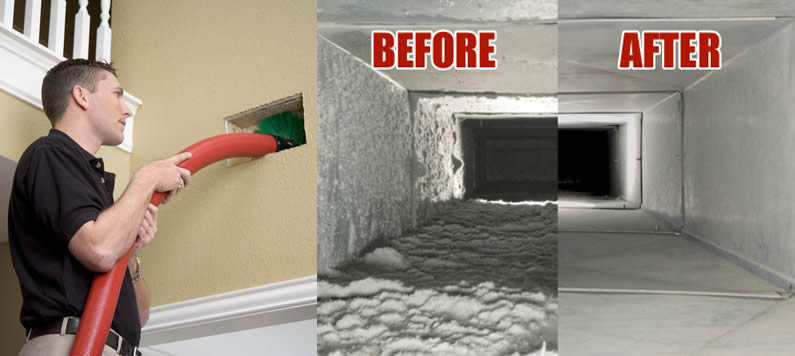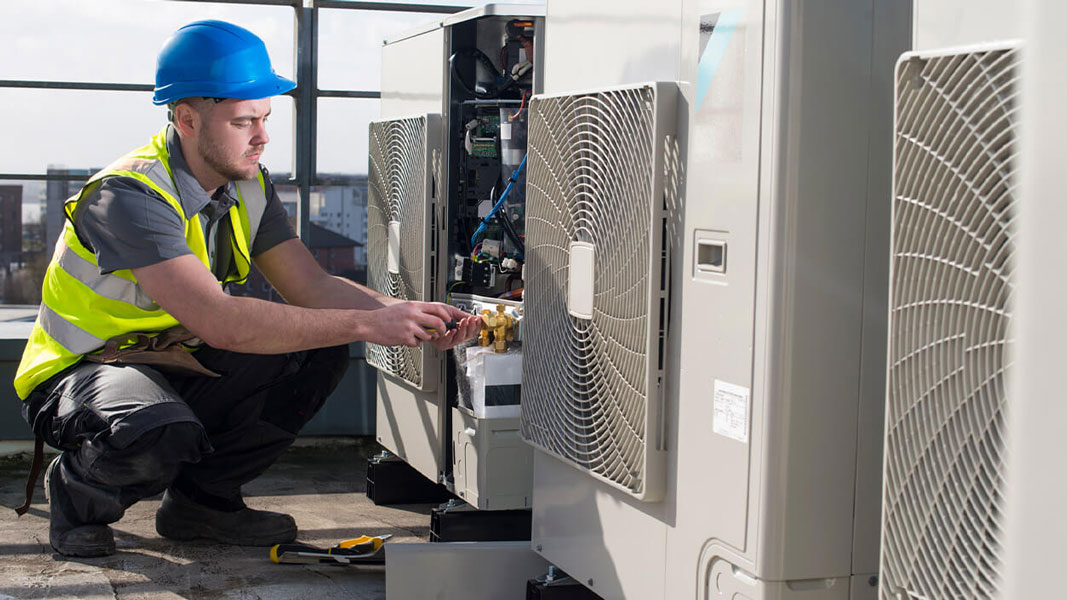Choosing an Eco-Friendly Air Conditioner: What to Look For
The Scientific research of Cool: Exactly How Air Conditioners Job =================================================================
Picture your a/c as a master carver, skillfully chiseling away at the overbearing heat in your home, leaving behind a great, comfortable sanctuary. Have you ever asked yourself just how this modern-day marvel accomplishes such an accomplishment?
The complex dancing of cooling agents, coils, compressors, and air ducts all operate in harmony to create that invigorating blast of cool air. Yet how precisely do these elements integrated to create that much-needed break from the blistering warm?
Allow's uncover the inner functions of air conditioners and debunk the science behind remaining cool.
Key Takeaways
- Efficient Air conditioners use cooling agents to take in and launch heat, boosting cooling and power efficiency.
- Routine maintenance makes certain optimal performance, longevity, and energy financial savings.
- Correct sizing and layout protect against power waste and make sure even cooling distribution.
- Comprehending air flow dynamics and optimization boosts cooling effectiveness and convenience levels.
The Fundamentals of Air Conditioning
Comprehending the basics of a/c can greatly enhance your expertise of just how these systems operate successfully. Power performance is a vital aspect of air conditioning, as it not only impacts your electrical power costs yet also the environment. Effective air conditioners make use of much less energy to cool down a room, making them affordable and eco-friendly. By purchasing an energy-efficient system, you can enjoy a comfy indoor atmosphere while lowering your carbon footprint.
Humidity control is an additional crucial function of cooling. Ac unit help manage the moisture degrees in your house, developing a much more comfy atmosphere. Excess humidity can bring about mold and mildew growth and discomfort, while reduced humidity degrees can trigger dry skin and breathing concerns. A well-kept ac unit can effectively manage humidity, ensuring a healthy and balanced and pleasurable living environment for you and your family.
Comprehending how a/c systems manage power efficiency and humidity control can help you make notified decisions when choosing and making use of these systems in your home.
Understanding Refrigerants and Their Role
When it pertains to a/c unit, comprehending cooling agents and their function is very important. You'll find out about the importance of cooling agents in cooling down systems and exactly how they facilitate the warmth transfer procedure.
In addition, thinking about the ecological impact of cooling agents is necessary for sustainable air conditioning remedies.
Duty of Refrigerants
Refrigerants play an important function in the procedure of a/c unit by promoting the transfer of heat. The performance of a cooling agent straight impacts the cooling procedure and energy intake of the system.
When taking into consideration cooling agents, it's essential to consider their effectiveness against their ecological effects. Some refrigerants add to ozone depletion and worldwide warming, motivating the look for greener choices. Sustainable measures focus on finding cooling agent choices that are energy-efficient and have very little environmental influence.
Manufacturers are increasingly investing in developing new cooling agents that straighten with sustainability goals. By prioritizing refrigerant effectiveness and checking out lasting alternatives, the cooling sector aims to decrease its carbon impact and decrease ecological injury.
Ecological Influence Considerations
Considering the ecological impact of cooling agents is essential in examining the sustainability of a/c systems. https://muswellhillhvac.co.uk/air-conditioning-repair.html When reviewing the ecological ramifications of air conditioning system, 2 crucial elements to think about are energy performance requirements and carbon footprint analysis.
- Power Performance Specifications:
Energy-efficient air conditioners take in much less power, minimizing overall energy usage and environmental effect.
Carbon Impact Analysis:
Conducting a carbon footprint evaluation aids in comprehending the quantity of greenhouse gas discharges connected with air conditioning operations.
Refrigerant Selection:
Choosing refrigerants with lower Worldwide Warming Prospective (GWP) can significantly minimize the environmental influence.
Correct Disposal:
Ensuring correct disposal of old cooling agents stops them from damaging the atmosphere.
Routine Upkeep:
Routine upkeep of air conditioning systems can boost performance, reducing power usage and ecological effect.
The Process of Heat Transfer
When your air conditioner runs, it relies on a procedure of warm transfer to cool your area efficiently. This system includes the absorption of warm from the interior air and the exchange of thermal power to preserve a comfortable temperature level.

Comprehending this crucial aspect aids you grasp just how ac unit efficiently manage the climate in your house.
Warm Absorption Mechanism
To efficiently cool down the air in your room, air conditioners employ a warm absorption device that successfully transfers warm. This mechanism plays a crucial function in keeping temperature level policy and making use of sophisticated air conditioning innovation.
Here's exactly how the warmth absorption process functions:
- Cooling agent Circulation: The cooling agent absorbs warm from the interior air.
- Compression: The compressor raises the pressure of the refrigerant, creating its temperature to increase.
- Condensation: The warm, pressurized cooling agent releases warmth outside as it condenses into a liquid.
- Growth Valve: This part decreases the cooling agent stress, causing it to cool down and evaporate.
- Dissipation: As the cooling agent evaporates, it takes in heat from the indoor air, starting the cycle anew.
Thermal Power Exchange
In the procedure of thermal energy exchange, warmth transfer plays a vital duty in exactly how air conditioning unit operate to cool indoor spaces effectively. Thermal characteristics determine that heat always moves from a warmer location to a cooler one. A/c utilize this principle by removing warm from interior air and releasing it outside, utilizing refrigerants to help with the transfer.
Reliable thermal energy exchange is essential for the energy effectiveness of an air conditioning system. By maximizing warm transfer processes, air conditioning unit can cool rooms properly while minimizing power consumption. Recognizing the dynamics of warm transfer is crucial for developing and running air conditioners that give the desired degree of comfort without unnecessary power waste.
Evaporator Coils and Their Function
Understanding the function of evaporator coils is essential to understanding just how air conditioning unit successfully cool down indoor areas. These coils play an essential role in the cooling procedure by taking in warmth from the indoor air, which is after that distributed back as great air.
Right here are some bottom lines about evaporator coils:

- Evaporator coil efficiency directly impacts the cooling performance of the a/c.
- These coils contain refrigerant that vaporizes as it takes in warmth from the indoor air.
- As the refrigerant evaporates, it transforms from a liquid state to a gas, cooling the air at the same time.
- The cooled down air is after that dispersed throughout the space using the duct.
- Proper maintenance of the evaporator coils, such as normal cleaning, is important to assure leading performance and energy effectiveness.
Compressor and Condenser Workflow
Efficiently cooling interior spaces includes understanding how the compressor and condenser interact in an a/c system. The compressor plays a critical duty in the cooling procedure by pressurizing the refrigerant gas, raising its temperature and energy level. This high-energy gas then streams to the condenser, where it releases heat to the surrounding atmosphere, causing it to condense right into a high-pressure liquid.
The condenser additionally cools this fluid via warmth exchange with the outdoors air, converting it back right into a low-pressure gas. This procedure improves power performance and enhances the system's cooling power. Temperature policy is accomplished as the refrigerant cycles via these system elements, absorbing heat inside your home and launching it outdoors.
Air Ducts and Air Circulation
To optimize air flow and assurance constant air conditioning throughout your space, correct installation and upkeep of duct are vital. Making certain that your duct are designed effectively and in a manner that promotes excellent air movement characteristics is vital for the overall performance of your a/c system. Ventilation approaches play a substantial role in keeping interior comfort levels, so it's important to take note of the following:
- Air duct Design: Effectively designed duct help ensure that great air gets to every corner of your room effectively. https://muswellhillhvac.co.uk/air-conditioning-installation.html
 * Air flow Characteristics: Comprehending exactly how air moves through the ducts can assist you recognize any kind of prospective issues that may interrupt the air conditioning procedure.
* Air flow Characteristics: Comprehending exactly how air moves through the ducts can assist you recognize any kind of prospective issues that may interrupt the air conditioning procedure.
Routine Maintenance: Maintaining your air ducts clean and devoid of obstructions is crucial for maintaining air flow and system performance.
Securing Leakages: Guaranteeing that there are no leakages in your ductwork assists avoid great air from escaping, boosting power performance.
Balancing Air movement: Appropriately balancing the air movement in different rooms can help keep constant cooling throughout your office or home.
Frequently Asked Questions
Just how Does the Size of an A/c Affect Its Effectiveness and Cooling Capacity?
When picking an ac unit, keep in mind that dimension matters. A device that's also little may have a hard time to cool your area effectively, while a large one might lose energy and not evaporate correctly. Guaranteeing appropriate sizing considerations will boost efficiency and air conditioning capacity.
The best size directly affects performance, helping you stay comfortable without unneeded costs. So, when it involves air conditioning unit, bear in mind dimension for ideal performance and cooling power.
What Are Some Typical Upkeep Tasks That Can Aid Boost the Life Expectancy of an A/c Unit?
Normal upkeep jobs can greatly prolong the life of your a/c unit. Bear in mind to replace filters to guarantee appropriate air movement and tidy coils to improve cooling performance.
In addition, calibrate your thermostat for precise temperature analyses and inspect the refrigerant degrees for best efficiency.
Can Air Conditioners Be Used combined with Other Cooling Techniques, Such as Followers or Dehumidifiers?
Yes, you can improve your air conditioning experience by combining your ac system with fans. This cooperation can help circulate awesome air better, giving an extra comfortable setting and potentially saving energy.
Additionally, making use of a dehumidifier along with your air conditioner can improve cooling effectiveness by minimizing moisture degrees, making your room feel cooler.
Take into consideration these options to enhance your air conditioning configuration and enhance your general comfort during hot days.
Are There Any Kind Of Ecological Concerns Related To making use of Air Conditioners, and Just How Can They Be Mitigated?
When utilizing air conditioners, bear in mind environmental issues like power intake and greenhouse gas exhausts.
To minimize these issues, think about sustainable air conditioning approaches and environmentally friendly alternatives.
You can lower the effect of a/c unit by utilizing energy-efficient designs, preserving them frequently, and integrating various other cooling methods like fans or dehumidifiers.
What Innovations Are Being Made in Air Conditioning Technology to Make Devices Much More Energy-Efficient and Eco-friendly?
To make a/c unit a lot more energy-efficient and environment-friendly, improvements like wise technology and green features are being created. These advancements focus on enhancing power savings and lowering ecological impact.
By including wise technology, air conditioning units can maximize efficiency based on usage patterns. Using eco-friendly products and parts additionally adds to making these devices extra sustainable.
These advancements aim to improve effectiveness while lessening the environmental footprint of air conditioning modern technology.
Conclusion
So, now you recognize exactly how a/c work!
From the refrigerants circulating via the system to the warm transfer procedure, each part plays an essential function in maintaining you cool down.
The evaporator coils take in warmth, the compressor and condenser launch it, and the duct distribute the awesome air throughout your area.
Next time you turn on your AC, keep in mind the scientific research behind everything! Keep great!